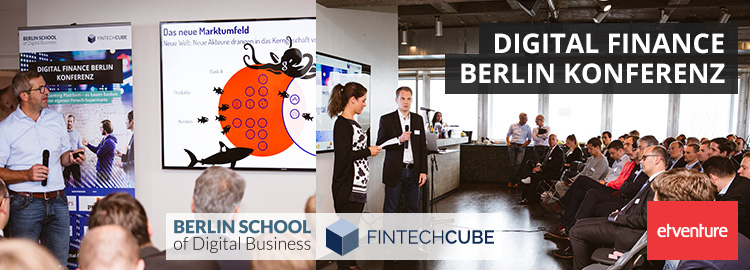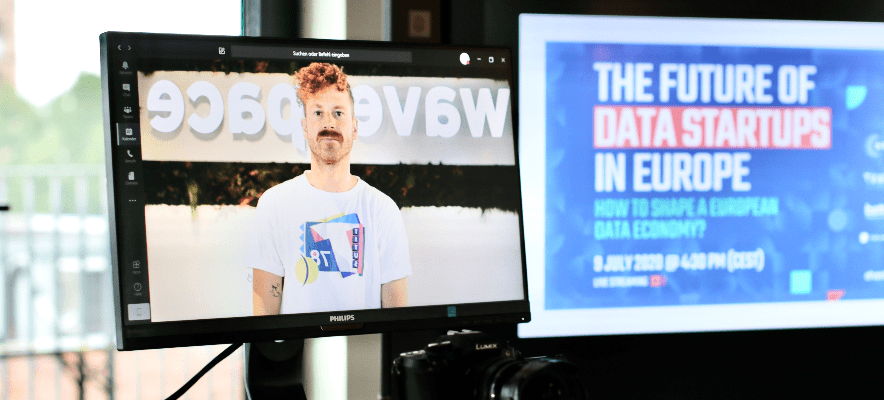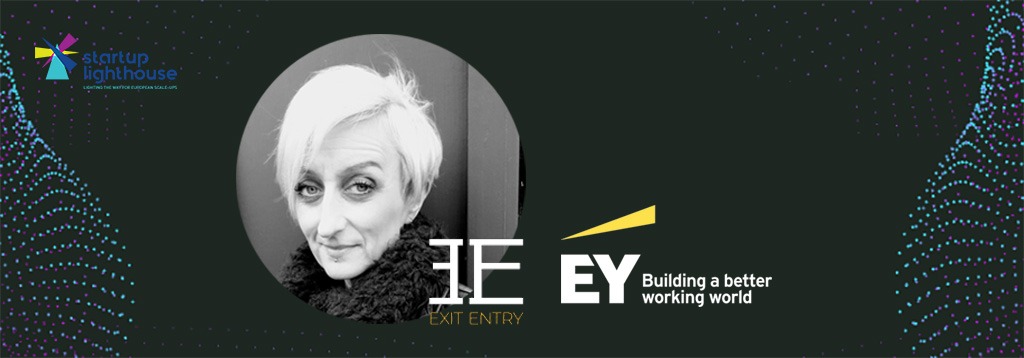Digital Finance Berlin – fintech supermarkets are the future
07. October 2016
The Digital Finance Berlin conference took place yesterday. Around 120 delegates, who represented both fintechs and the traditional financial sector, gathered at the conference to discuss cooperation between banks and fintech startups. The event’s hosts, the Berlin School of Digital Business and FinTechCube, provided an exciting program with a large variety of specialist presentations, speed networking sessions and innovative formats such as the FinSlam. To summarize the event: The bank, which has previously been a self-contained institution, is on its way to becoming a fintech supermarket that integrates a wide range of digital products into a single banking platform.
“Fintechs do not want to replace banks”
“No fintech or tech giant like Google or Amazon wants to completely replace the bank,” said André M. Bajorat, CEO of figo GmbH and fintech expert, in his talk. Instead, he says that digital players occupy individual sections of banking’s value creation chain. So what advantage do they have over established financial institutions? They offer solutions that are digital, transparent, and – most importantly – user-focused. Although this means that fintechs should be taken seriously as competitors, it also makes them attractive collaboration partners. By incorporating these fintech products into their portfolio and offering them through their own open banking platform, banks enrich their product range with innovative services and obtain digital access to new target groups. The bank thus becomes a fintech supermarket in which customers can select appropriate the financial products and services that they want.
But how can this kind of partnership work? This was the key question at the Digital Finance Berlin conference and a wide range of perspectives shed light on it. Professor Dr. Lars Hornuf presented the main findings of his study about the fintech market in Germany, which was supported by the German Federal Ministry of Finance (BMF). Dr. Christian Storck and Dr. Daniel A. Pauly from Linklaters LLP discussed the legal aspects of such collaborations. Another perspective was provided by Dr. Jörg Sandrock from PWC. He highlighted the fact that, in addition to being able to provide a better response to customer requirements than a self-contained banking system, open banking platforms are also much more effective and flexible.
Clashes at the FinSlam, conversations at speed networking sessions
There were then head-to-head clashes between banks and fintechs at the FinSlam. From each camp, three companies presented their open banking platform solutions. The banks, which have already made a start on their ‘YNOME’ platform, were Commerzbank, DKB and UBS and the fintechs were moneymeets, Guidants and treefin. They only had five minutes for their presentations. Afterwards, the audiences rated the pitches and crowned moneymeets, the ‘social network for financial topics,’ as the winner of the FinSlam.
This was followed by speed networking sessions, which gave the banking representatives the opportunity to talk with fintechs from a wide variety of sectors and with different topic specialisms. The specialisms included InsurTech, robo-advisors, and blockchain technology. In total, 17 fintechs were present, including Barzahlen.de, companisto, vaamo, SumUp, True Wealth, Cringle, and seedmatch. Delegates also heard presentations the etventure startup ZenPension and from Rentenhero, a digital business model that flowed from the joint venture between etventure and Wüstenrot & Württembergische AG.
Double the number of participants
“Our objective is to build bridges between fintechs and banks,” says Gregor Puchalla, Managing Director of FinTechCube. “The established institutes and the digital players are worlds apart when it comes to speed, the way they work, and the way they think. With ‘Digital Finance Berlin,’ we’ve created a platform that provides ‘translation assistance’ between these worlds. The number of participants itself is an indicator of the extent to which digitization and cooperation between banks and fintechs are hot topics for this sector. Compared with the first edition of the event last year, the number of people registering as participants has more than doubled.
In the meantime, the Digital Finance Berlin conference has been covered by numerous sector-specific magazines, including Finanzwelt, Private Banking Magazin, and die bank. The specialist magazine IT-Finanzmagazin also published a long article about the conference and offered this very positive summary: “An event you should keep on your radar from now on.”













* Required field